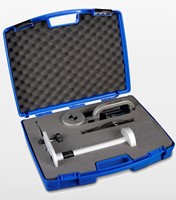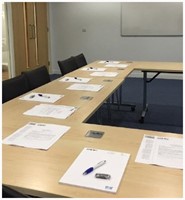When choosing an installer for your automatic gate system, ensuring they have the right expertise and commitment to safety is essential. Not all installers are required to follow specific training or safety standards, but asking the right questions can help you gauge their qualifications and dedication to creating a safe, compliant installation. In this guide, we’ll explore key questions to ask your prospective installer, from their safety certifications to the tools they use, ensuring you choose a professional who meets the highest standards in the industry.
Key questions to ask to gauge the level of you proposed installer.
Have you done DHF or Gate Safe training?
These courses show an installer’s commitment to safety. DHF (Door & Hardware Federation) or Gate Safe training ensures they are well-versed in designing out potential safety risks from the start, reducing the chances of dangerous situations occurring.
Door and Hardware Federation - Automated Gates and Barriers Training
Gate Safe - Automated Gate Safety Training
Automatic gates can be installed in such a way that all high risk has been designed out of the system. However if the possible areas of safety concern are overlooked an automatic gate can have the potential to cause harm. An installer is not obliged to have registered with the DHF or Gate Safe or to have done their courses on safety. Doing so shows a commitment on their part to create the safest possible systems.
Do you carry a force tester?
A force tester, like the BlueForce Smart Tester, is an essential tool for measuring the force a gate applies, ensuring it complies with safety regulations. Installers who use a force tester demonstrate not only a knowledge of the standards but a commitment to applying them in their work to ensure the gate stops and reverses immediately if it encounters an obstacle.

Part of understanding the risk a gate posses to the human body is to know how much force it is moving with. A force tester can read the force the gate can crush with at various location to check if it is compliant with the current regulations. This device goes further than this because it also takes note of the reaction time as at gate should stop and reverse almost instantly if it hits someone. Carrying and using a force tester shows that the installer has not only read the standards but is also actively applying them to their work.
Have you had product training from the manufacturer?
Manufacturer training, like the courses FAAC offers, ensures that installers understand the specific equipment they are working with and know how to fit it correctly. Installers who invest time in these trainings are better equipped to install systems that maximise the performance and safety of your gate
It is recommended within the automation industry that engineers attend training provided by the manufactures of the equipment to insure that it is fitted correctly. Here at FAAC, free training is offered to all of our account holders so we can keep them informed of how to get the best out of our products.
If you would like to be put in contact with installers in your area click here
